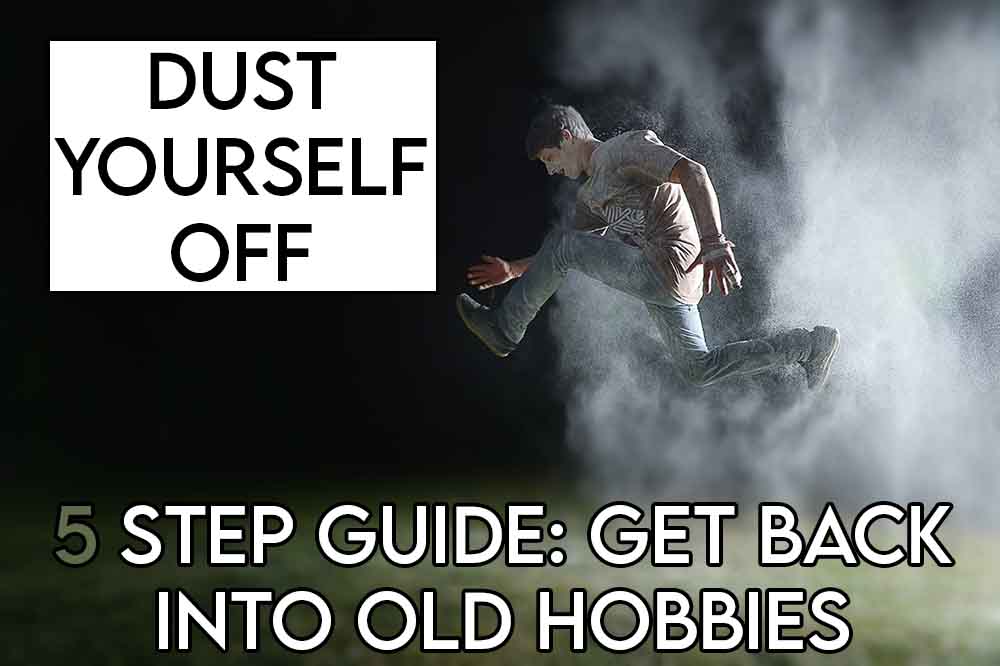Introduction
Losing interest in hobbies is something that’s quite common, however, rekindling or getting back into old hobbies can sometimes be a minefield which is why we’re going to help you with that in our guide.
We’re going to explore some ways that you can best prepare yourself and also look at some things that you may want to avoid.
There may have been a few reasons why you stopped engaging in your old hobby, but in most cases, there’ll be something that stands out as being the main reason.
That reason is probably going to drive your decision-making on whether to start doing it again especially since you don’t want to waste your time and end up quitting again.
5 Step Guide: Get Back Into Old Hobbies With a Clear Mind
1. Assess why you stopped in the first place
Being able to assess why you stopped a hobby in the first place will give you some clarity around the whole situation.
It’s very important to establish the main reasons for stopping so you can avoid them in the future or at least know what to look out for.
Once you’ve made your assessment you can make a mental note and can approach your hobby with more finesse.
2. Dispel unhelpful stereotypes
Sometimes people quit their hobbies because people stigmatize them or bombard you with stereotypes about what you shouldn’t be doing those hobbies.
Some good examples of this include activities that people associate with kids e.g. skateboarding or yo-yoing when in actual fact, you can continue doing them regardless of your age.
You shouldn’t let people make you quit a hobby based on what their perceptions are about what’s suitable and what’s not.
The only thing that matters is that you’re having fun and being productive within your life.
3. Create a plan of action
Once you’ve established the reasons for quitting your hobby including dispelling unhelpful stereotypes, you can now put into effect a plan of action.
This plan of action should include what to avoid i.e. negative people, stereotypes, previous pitfalls, and how you can be more positive or reframe some of those situations for why you quit in the first place.
Sometimes it can be something really simple such as allocating your time better to suit your schedule.
It may even be a case of trying those hobbies in a more social setting to give you more people to talk to and to give you a little more support to help develop the skills needed.
The plan of action should be brief, to the point, and not convoluted with lots of vague tasks or intricacies — this will help you stick to what’s important.
You may want to include some of the things we’ve mentioned in the article, however, most effective plans should help you build better habits rather than having overly elaborate goals.
4. Aim for incremental gains
Getting back into an old hobby can be a daunting task and you may be frightened about the prospect of not being as good as you used to be.
The truth is, you can be better than you used to be if you have the right approach.
Leading author, James Clear (Atomic Habits), suggests that aiming for small improvements each day rather than setting a goal is a better way to keep developing yourself whilst remaining positive.
Basically, if you set a goal then if you don’t achieve it you’ll be disappointed, but if you do achieve it then most people sit back and relax too much because they think they’re “done”.
If you try to improve incrementally each day then you know your work is never done but you’re much more likely to continue as each day will feel like a win regardless of how small those improvements are.
Small changes are powerful too: 1% might not look like much each day, however, by the end of the year you could be orders of magnitude more effective at whatever it is you’re doing.
5. Make it about you
Another thing that people do (that can make them more likely to quit a hobby) is they compare themselves to another person’s achievements.
A good example is someone who goes to the gym; they might feel embarrassed because they can’t lift as much weight as another person so they start trying to lift heavier weights but compromise their form and thus, end up with injuries or ineffective results.
This time around, you need to make your hobbies about you and your own personal developments rather than comparing them to other people.
Everyone is different and no two people walk the same path in life so make sure you start treating it as such.
You’ll be much more likely to stick to something that you’re making incremental gains on every day rather than looking at the huge mountain of progress that another person has made.
Conclusion
Getting back into old hobbies can be a challenge if you don’t take the right steps or precautions to help avoid giving up like your last go around, however, with the steps we’ve provided you should be able to give it a better run this time with much more effectiveness and hopefully more enjoyment too.
As always, if you enjoyed our article then make sure to save our homepage to your favorites for more hobby advice and questions.





